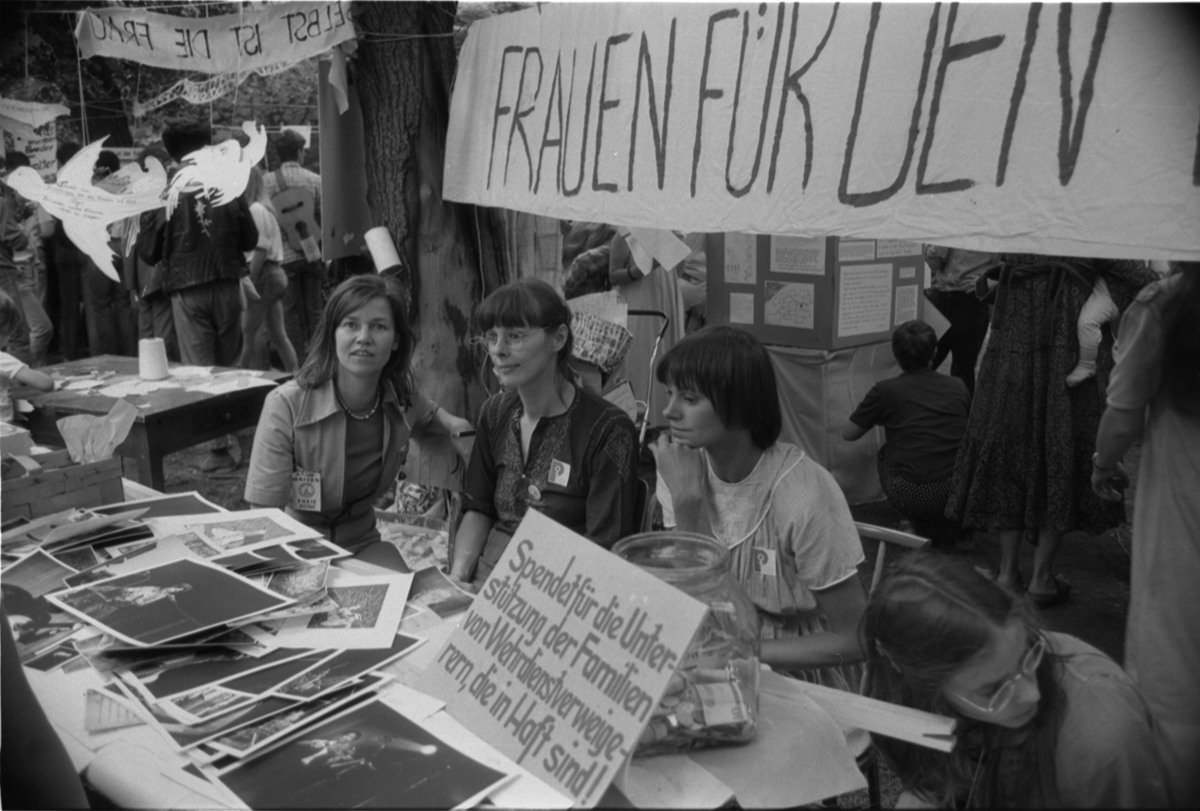Source

Source: Photo: Werner Fischer. Archive of the Robert-Havemann-Gesellschaft. Image no.: RHG_Fo_WF_061
On March 25, 1982, without prior public discussion, the People’s Parliament [Volkskammer] enacted a substantially harsher military service law. The new legislation stipulated the inclusion of women in general compulsory military service during times of mobilization and defensive alert. In direct response, approximately 200 women signed a petition protesting the possibility of compulsory military service for women. It was sent to Erich Honecker on October 12, 1982. Protests against the new military service legislation gave rise to the group “Women for Peace” [Frauen für den Frieden]. Its membership included Bärbel Bohley, Barbara Linke, Ulrike Poppe, and Katja Havemann, the widow of famous GDR dissident Robert Havemann, among others. After the first chapters of the women's movement were established in Berlin and Halle, more groups were founded in Jena, Magdeburg, and Leipzig. In 1985, there were fifteen women’s groups in ten regions of the GDR. This picture shows (from left to right) Barbara Linke, Katja Havemann, and Gisela Metz at a “Women for Peace” booth during a peace workshop in the Church of the Redeemer [Erlöserkirche] in East Berlin on July 3, 1983.

Source: Photo: Werner Fischer. Archive of the Robert-Havemann-Gesellschaft. Image no.: RHG_Fo_WF_061
© Werner Fischer/ Robert-Havemann-Gesellschaft